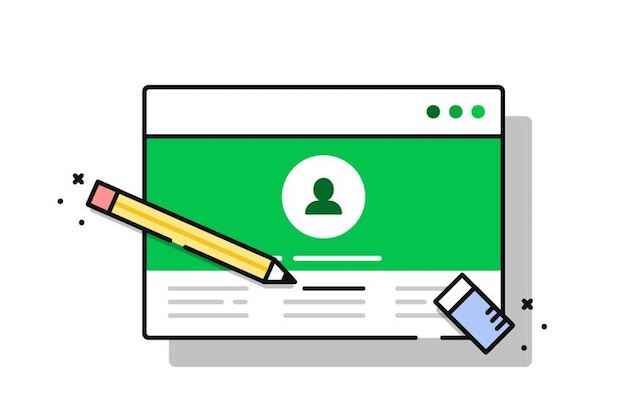Today, everyone has a website! The international communication agency, the freelance graphic designer, the software development firm, the marketing student, your brother-in-law… everyone! With so many “experts” out there, it can be difficult for a company to find the right digital agency.
In order to help you make informed decisions, in this article, we’ll present a number of signs that a web agency is not necessarily the best one to help you achieve the growth you so desire. If an agency meets one or more of these criteria, you should be hesitant.
#1 The Agency Doesn’t Provide a Strategy
The most important shortcoming of a large proportion of digital agencies is their lack of vision and strategic planning. Many agencies will deliver graphically interesting websites, but fail to create a digital platform that will generate value for your business when that is where most of their efforts should be focused.
A beautiful website without a strategy is like an expensive business card. You’ll be able to refer it to business contacts you meet and if you’re lucky they might call you back. But is that what you want? A website that generates a single lead for you once in a blue moon? The answer is likely no.
With a strategy, your website can become much more than just a business card. A good agency won’t just talk to you about a website but about a web strategy. Here are the things your agency should be talking to you about if they are a truly good web agency:
- Planning: Before starting to draw the first mock-up of the website, put the first advertisement online, or type the first line of code, any good agency will propose helping you draw up a web strategy. In this preliminary step to any online activity, your agency will seek to establish three main aspects of your project: who are your target audience, what are your objectives, and which internal and external factors will influence your decision.
- Acquisition: Once you have completed the planning elements, you need to have a strategy to reach your target audience and achieve your traffic goals. At this point, your digital agency should be able to present you with solutions that cover the 3 main types of traffic: paid, organic, and direct. A good strategy should focus on diversified traffic sources: if your traffic comes from one source, not only are you probably missing opportunities, but you’re also leaving your business exposed. A company that only relies on Google for traffic to its website can completely go under if Google decides to make small changes to its algorithm.
- Engagement: While some agencies will be able to help you with traffic acquisition, they are rarely of much help in the next step of engaging your visitors, which is turning them into leads. You may have millions of visitors to your website, but if you can’t turn them into leads, your investment in the website wouldn’t have been worth it. Web engagement is about getting visitors to identify themselves on your website in exchange for a unique/attractive/special offer. Once the information is collected, you are no longer dealing with anonymous visitors, but with real prospects!
- Conversion: Having leads is great, but customers are so much better! Your web provider should include tactics that convert prospects into (hopefully recurring) customers in your web strategy. At this point, it’s time to sit down with the sales department and the marketing department to implement an effective conversion process together and then discuss it with the web agency. What steps in the sales process can be automated or facilitated by the web? Ask your digital development agency, they will know how to answer if they are a good developer like this website developer in Sydney.
#2 It Doesn’t Give You Full Access to Your Project
Another common problem with some agencies is their insistence on controlling all access to the platforms they develop/manage for you. Some will defend themselves by saying that it is to protect the site so that there are no changes that could hinder its operation. Indeed, sometimes there can be some risks, especially if you’re inexperienced, but there is a difference between giving full access to the entire back-end of the site without any checks and allowing the client to create new pages or blog posts themselves.
Unfortunately, some agencies control all access to their clients’ sites. Sadly, this is not even limited to the website — some providers will create accounts in different tools (Google AdWords, Google Analytics, MailChimp, Facebook Ads, etc.) and will never give the client access.
The final result, predictably, is a disaster: when your company finally manages to get access to the projects you’ve paid for, you will probably notice major errors and glaring problems that have gone unfixed for months or even years!
In short, in this business model, they are YOUR access to everything and you are entirely reliant on them for everything. Before doing business with an agency, always ask if you will have access to the codes, programs, and tools you PAY for. This way, if you decide to change agencies or if you want to move certain projects to your internal team, you won’t be starting from scratch. If they don’t want to share access with you, this is a pretty major red flag.
#3 It Doesn’t Use Performance Indicators
A digital agency that can’t tell you more about your last campaign than “it was good for your brand awareness!” is probably not a good company. The web is a data-driven medium that offers a plethora of ways to measure performance, and you have the right to hold your agency accountable. Ask them which channels generate the most leads or sales, on which pages, at what time… Ask them anything you want and they should be able to suggest performance indicators to follow to satisfy your thirst for information. This won’t only improve the website, but it will also help you make more informed business decisions.
#4 It Doesn’t Help Your Website Generate Traffic
It is always sad when you see companies that invest several thousand dollars for a website that does not generate any results. “Yes, but it’s still beautiful… isn’t it?” say many disillusioned business owners after a botched website launch. A website doesn’t just have to be beautiful. It must bring you business and be a vector of growth for your company. That’s the primary objective of any business website, and you should never forget that.
Your web agency must promise you results that go hand in hand with achieving your business objectives. Ask your agency (current or future), “How will you go about generating leads for our company on the web?” If his answer is vague, that’s not a good sign!








